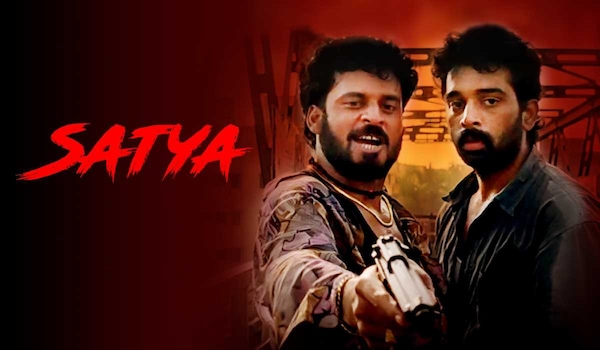26 Years of Satya: Explore how Ram Gopal Varma's film revolutionized Mumbai noir
Reflecting on Satya, explore how Ram Gopal Varma's crime film became a cult phenomenon. It features a stellar cast including J.D. Chakravarthy, Urmila Matondkar, and Manoj Bajpayee.

Last Updated: 09.02 AM, Jul 03, 2024
26 years have passed since the crime film Satya was released. Ram Gopal Varma directed the film, and Saurabh Shukla and Anurag Kashyap penned the screenplay. Starring an ensemble cast with Shukla, Aditya Shrivastava, and Paresh Rawal, it features J. D. Chakravarthy, Urmila Matondkar, and Manoj Bajpayee. Planning to revisit the cult classic Satya? The film is currently streaming on SonyLIV (OTTplay Premium).
Satya plot overview and main characters
This is the first installment of Varma's Gangster trilogy, which focuses on the Indian underworld. An immigrant named Satya (Chakravarthy) arrives in Mumbai in search of work, befriends Bhiku Mhatre (Bajpayee), and finds himself entangled in the city's criminal underbelly.
In the film, Satya (J.D. Chakravarthy), a sincere young man who travelled to Mumbai in search of employment, must delve into the city's criminal underworld to survive. Urmila Matondkar portrays Vidya, a stunning singer recently released from prison. Vidya hates the gangs in her neighbourhood. In an effort to capture her heart, Satya chooses to keep his illicit connections hidden from her. However, as a vicious gang war escalates, this becomes increasingly impossible.
Many critics praised Satya upon its premiere, praising Bajpayee's performance and the film's realistic portrayal of India's underworld. Additionally, it was financially successful, raking in ₹15 crore and launching the careers of several actors, notably Kashyap and Bajpayee. The film received a national award, and Manoj Bajpayee won Best Supporting Actor.
Impact and influence on Indian cinema
Satya has gained cult status over the years, and many Indian cinema experts and reviewers rank it among the best films of all time. Some say it's the most seminal film of all time. Among the sequels inspired by it are Company (2002), D (2005), and Satya 2 (2013).
The film popularised a subgenre of noir cinema called "Mumbai noir." Satya also initiated a new trend for low-budget, high-concept, star-free Hindi films.

